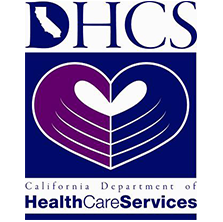Healthy eating habits are important for everyone, but especially crucial for those recovering from addiction. Complete recovery is about restoring your mind and body back to health, and eating healthy is one of the best ways to recharge the body that’s been destroyed by addiction.
Addiction and Nutrition Health
Every set of chemicals in substances have their own effect on the body. While some are toxic themselves, others hinder a person’s judgment. When an addiction develops, individuals increase their chances of engaging in destructive behavior as well as neglecting their own personal health and nutrition.
Substance addiction wreaks havoc on the body’s ability to absorb nutrients. Different types of addiction result in different types of malnutrition someone experiences. For example, those abusing opiates usually show calcium, vitamin D, B6, and iron deficiencies. Individuals who abuse cocaine have trouble maintaining normal levels of omega-3 fatty acids. Common deficiencies for those battling alcohol addictions include vitamin B6, thiamine and folic acid.
Addiction can also impact other parts of the body as well. Alcohol abuse risks internal organ damage to their liver and pancreas. It can result in diabetes, cirrhosis of the liver, heart disease, seizures and malnutrition. Opiates can cause damage to the gastrointestinal organs resulting in constipation during use and diarrhea, vomiting, and nausea during withdrawal. Stimulants including methamphetamine and cocaine greatly decrease a person’s appetite, resulting in the person being underweight and malnourished.
Nutrition and Recovery
The damage done by addiction may not be able to be completely reversed, but proper nutrition can go a long way in repairing tissues, organs, and the brain. In addition to that, the person’s overall mood and feeling will improve as well as increased physical and mental energy- a necessity during recovery. Many treatment centers offer a variety of healthful meals and snacks from a knowledgeable chef as well as nutritional counseling.
When an individual enters treatment, the first step is often detoxification. During this stage, the body is ridding itself of all drugs and toxins. Medical professionals closely monitor the client’s overall health and nutritional intake during this phase, helping the body to become stronger and able to recover from the addiction. Starting recovery with a healthy body makes the process much smoother. After the detox stage, rehabilitation follows.
Through recovery in a residential treatment center, a client lives in a controlled environment for a period of time. During this time, it is crucial that the meals provided are meeting the nutritional needs of patients. Treatment center chefs should be knowledgeable and mindful of the recovery process for all different addictions. Meals low in sugar, fat, and processed foods ensure that the body receives what it needs to sustain focus and energy. With the proper meals and snacks, clients will naturally begin to regain a healthy weight and energy levels.
Nutrition Education Counseling
Nutrition education is another important factor in recovery. In nutritional counseling groups, clients are taught how to properly fuel the body. They will also learn about the roles that certain vitamins and minerals play in the body during recovery. When clients enter treatment, they are coming from a time when they have neglected their bodies and nutritional health. A return to a healthy way of life free of addiction includes maintaining a healthy diet. Understanding the important of consuming foods like fruits, vegetables, proteins, and whole grains help clients in making better dietary choices in everyday life.
Vitamin deficiencies, malnutrition, and dehydration lead to various health issues and it’s crucial to correct these problems as early as possible in treatment. Over time, drugs and alcohol slowly poison the body. Some individuals fear that they will never feel “normal” after experiencing substance abuse and addiction, but the human body is incredibly resilient. With treatment and proper nutrition, a full and healthy recovery is possible.
Nutrition After Treatment
Nutrition not only plays an important role in the early stages of recovery, it is also vital to an ongoing healthy lifestyle. Making healthier nutrition choices encourages better choices in other areas of life as well, reducing the risk of relapse. In order to regain and maintain overall health and sobriety, an individual must practice healthy eating habits.
The final and ongoing stage of recovery is returning to everyday life, where a person utilizes the skills and knowledge learned in treatment for an addiction free life. During this stage, clients are able to practice their new nutritional habits and work to keep their bodies healthy and disease-free on the road of recovery.
START YOUR JOURNEY WITH
SAFE HARBOR HOUSE
(310) 861-4157
Contact Us Today
Verify Your Insurance




